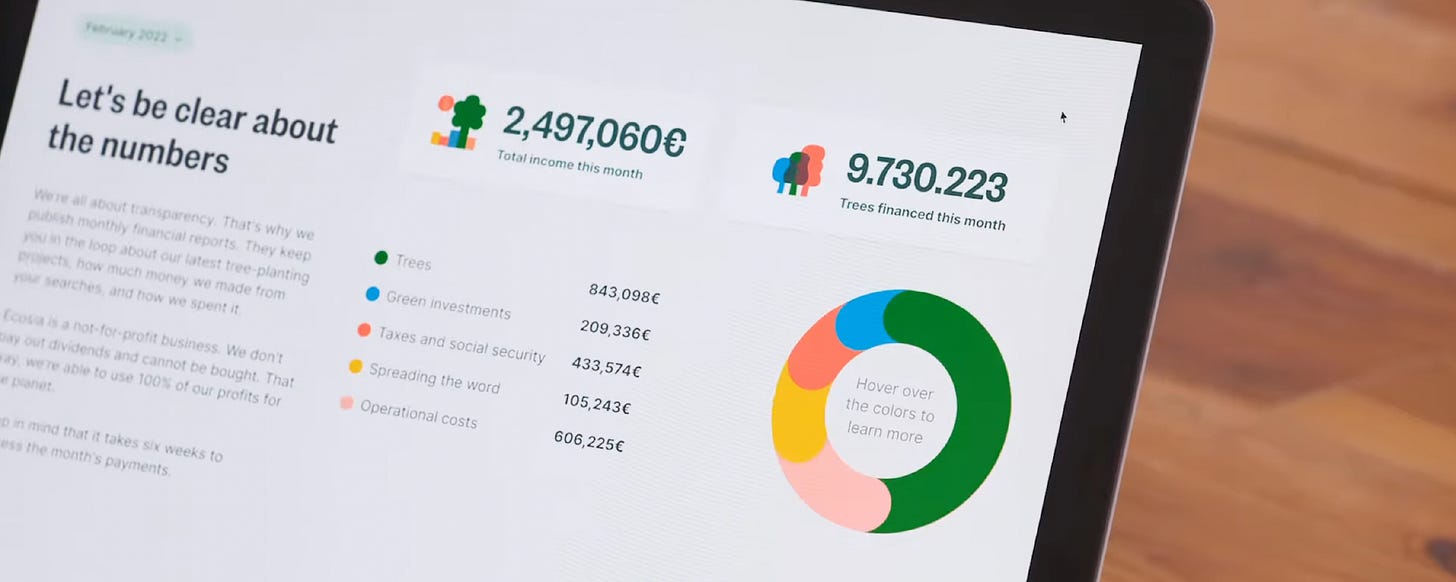Turning waste to warmth
Paper factory heats community, watered down climate rules, and how your search engine can fight climate change
GOOD NEWS
Did you know that more than 60 percent of the energy we produce gets wasted as heat? “It’s the biggest source of energy on the planet,” says Joseph King, a former DOE program manager. So rather than wasting it, why not use it?
That’s exactly what’s happening in Ottawa-Gatineau, on the Quebec side of Canada’s capital, where leftover heat from a paper factory is now heating some 615,000 square feet of apartments and office space. The system began operation in 2021, and construction is ongoing to increase the amount of space it can heat to 4 million square feet, according to the CBC.
How does this work? Heat exchangers pull heat out of the warm water left over from the paper-making process, and then pipe that heat through a district heating system that heats and cools multiple buildings. The water is already around 20-25C (75-85F), the perfect temperature for indoor heating, and each home and business can set its own temperature with an individual thermostat.
Europe has a longer track record of putting excess industrial heat to good use. In Sweden, waste-to-energy plants turn garbage into energy to power district heating plants. And in Dunkirk, France, energy from a steel plant has been harnessed to heat buildings since 1985. Excess heat has enormous potential: one study last year found that excess industrial heat in Europe, if properly harnessed, could heat and cool every home and business on the continent.
NOT-SO-GOOD NEWS
The U.S. Securities and Exchange Commission last week voted 3-2 to approve new rules that tell public companies what they must disclose about their carbon emissions. While this sounds like good news at first glance, the rules were significantly watered down from what was initially proposed in March 2022, thanks to successful lobbying efforts by fossil fuel companies and industry interests.
Originally, companies would have to disclose both their direct carbon emissions and something known as Scope 3 emissions, the downstream emissions resulting from their products and services. For fossil fuel companies, for example, this includes the carbon emissions from others burning the coal, gas and oil they produce and sell.
In the final rule, however, companies must disclose Scope 1 and 2 (direct and upstream) carbon emissions, and only the ones that they “consider material to their business." Many small companies are now exempt from making any disclosures at all, and the proposed requirement for publicly traded companies to report on climate risks to their assets was also removed.
While any rule is better than no rule, at the same time this is far from what’s needed today. Sierra Club and Earthjustice announced they may take legal action to challenge “the SEC’s arbitrary removal of key provisions from the final rule.”
“While a positive step, this rule falls significantly short of what’s needed," said Ben Jealous, Executive Director of the Sierra Club. “Greenhouse gas emissions are a critical measure of a company’s handling of climate risk and Scope 3 emissions represent the vast majority of emissions from most companies.”
WHAT YOU CAN DO
Small individual actions, even something as seemingly insignificant as the search engine you choose online, can have a global impact… if enough people do them.
That’s exactly the premise of a company called Ecosia. For the last 15 years, Ecosia has provided a search engine that uses the ad revenue it generates from your searches to plant trees where they’re most needed, from Thailand to France. They have other climate projects too: from building roof-top solar in Germany to providing seed investments to regenerative agriculture entrepreneurs.
Ecosia estimates it takes around 45 searches to pay to plant one tree. By January 2024, Christian Kroll, Ecosia’s CEO, announced that the company has planted 200 million trees in over 30 countries. Recently, they’ve expanded their offerings to include a train travel search engine; a tag on banks that invest in fossil fuels; and a “green” AI chatbot.
Starting just last week, Chrome and Safari users in the EU are now asked if they want to choose to use Ecosia as their primary search engine. With an estimated 750 million internet users in the EU conducting 3 to 4 searches per day, I calculate this has the potential to fund over 60 million new trees per year!
You don’t have to be in the EU to use Ecosia. It’s available everywhere around the world, including China, where according to Quertime Ecosia has “gained popularity due to its environmentally conscious approach.” So why not make the switch today, and amplify the impact of your action by inviting everyone else you know to join you?





Thanks for sharing the info on Ecosia ... I just switched over!
Thanks for the info. I didn’t know about ecosia. 😊